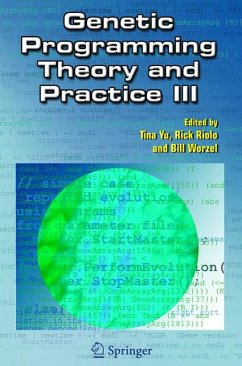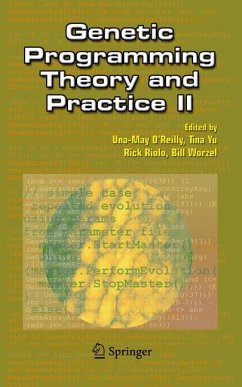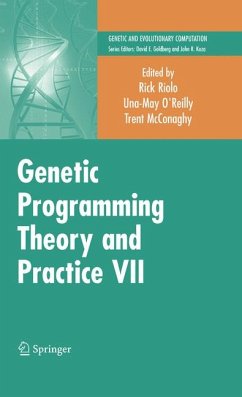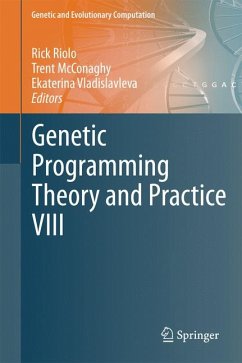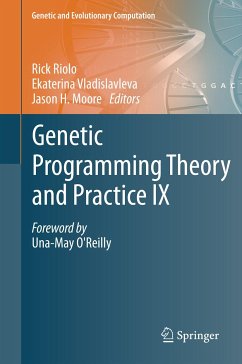
Genetic Programming Theory and Practice IV (eBook, PDF)
Versandkostenfrei!
Sofort per Download lieferbar
112,95 €
inkl. MwSt.

PAYBACK Punkte
56 °P sammeln!
Genetic Programming Theory and Practice IV was developed from the fourth workshop at the University of Michigan's Center for the Study of Complex Systems to facilitate the exchange of ideas and information related to the rapidly advancing field of Genetic Programming (GP). The text provides a cohesive view of the issues facing both practitioners and theoreticians, and examines the synergy between GP theory and application. The foremost international researchers and practitioners in the GP arena contributed to the volume, exploring application areas including chemical process control, circuit d...
Genetic Programming Theory and Practice IV was developed from the fourth workshop at the University of Michigan's Center for the Study of Complex Systems to facilitate the exchange of ideas and information related to the rapidly advancing field of Genetic Programming (GP). The text provides a cohesive view of the issues facing both practitioners and theoreticians, and examines the synergy between GP theory and application. The foremost international researchers and practitioners in the GP arena contributed to the volume, exploring application areas including chemical process control, circuit design, financial data mining and bioinformatics, to name just a few.
This volume is the result of an extensive dialog between GP theoreticians and practitioners, and is a unique and indispensable tool for both academics and industry professionals involved in GP, evolutionary computation, machine learning and artificial intelligence.
This volume is the result of an extensive dialog between GP theoreticians and practitioners, and is a unique and indispensable tool for both academics and industry professionals involved in GP, evolutionary computation, machine learning and artificial intelligence.
Dieser Download kann aus rechtlichen Gründen nur mit Rechnungsadresse in A, B, BG, CY, CZ, D, DK, EW, E, FIN, F, GR, HR, H, IRL, I, LT, L, LR, M, NL, PL, P, R, S, SLO, SK ausgeliefert werden.



